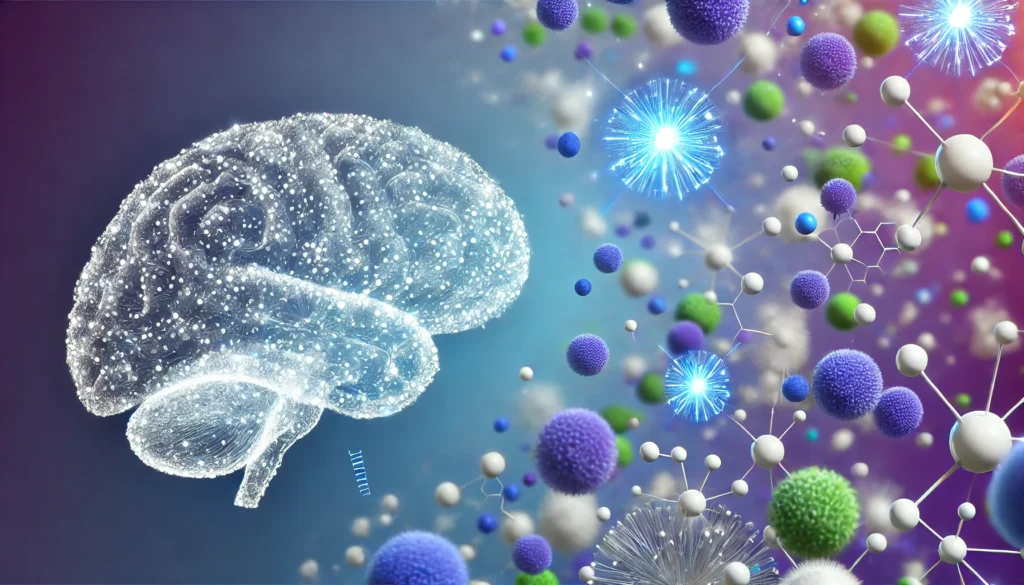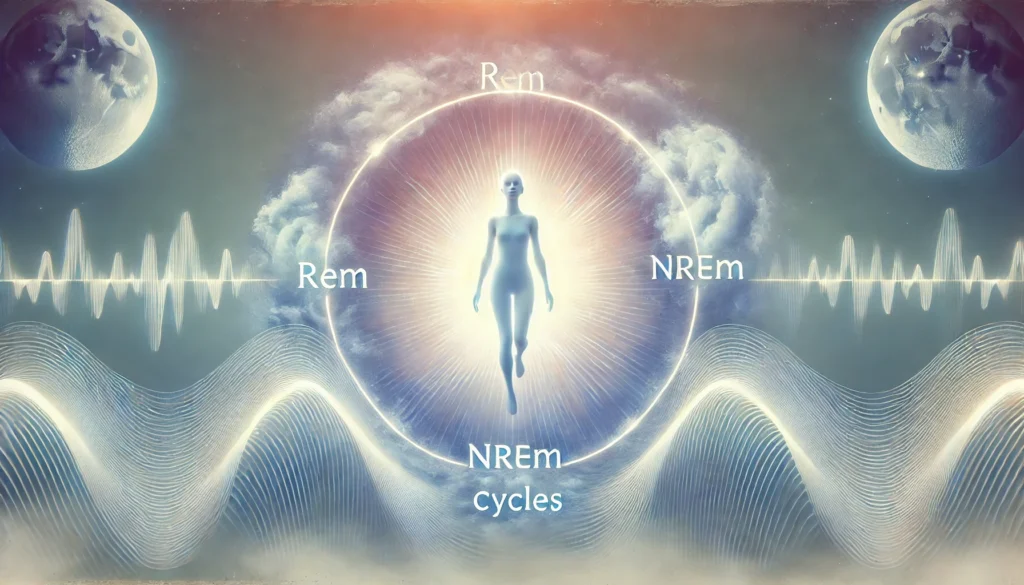Sleep is a universal human experience, yet its complexities remain a mystery. It’s a vital part of our lives, occupying about a third of our time.
But why do we sleep? What happens in our brains when we drift off into slumber?
These questions have intrigued scientists for centuries. Today, we know that sleep is not merely a passive state of rest, but a dynamic process involving various brain structures and functions.
Our brain, the command center of our body, plays a pivotal role in regulating sleep. It controls our sleep-wake cycle, orchestrates the different stages of sleep, and even remains active during certain phases of sleep.
Understanding how the brain controls sleep is not just a matter of scientific curiosity. It has profound implications for our health, well-being, and performance.
Sleep deprivation can impair cognitive function, mood, and physical health. On the other hand, good sleep can enhance memory, learning, creativity, and overall brain health.
In this article, we will delve into the fascinating world of sleep neuroscience. We will explore how the brain regulates sleep, why sleep is crucial for the brain, and how we can optimize our sleep for better brain health.
You May Also Like: Why Do We Sleep? Exploring the Importance of Rest for Optimal Focus and Performance
The Intricate Machinery of Sleep: Brain Structures and Their Roles
Sleep is orchestrated by a complex network of brain structures. Chief among these is the hypothalamus, a small but crucial region near the base of the brain.
The hypothalamus acts as a control center, regulating the sleep-wake cycle through its interactions with other brain areas and the release of hormones.
Adjacent to the hypothalamus, the suprachiasmatic nucleus (SCN) governs circadian rhythms. It acts as our body’s internal clock, responding to light signals to maintain a 24-hour cycle.
Another key player is the brainstem, which communicates with the hypothalamus to control the transitions between wakefulness and sleep stages. It sends signals that help to maintain wakefulness by releasing neurotransmitters like norepinephrine.
Meanwhile, the pineal gland produces melatonin, a hormone that signals the body to prepare for sleep as darkness falls. It plays a pivotal role in regulating sleep patterns as part of the circadian rhythm.
The thalamus, which relays sensory information to the cortex, becomes inactive during certain sleep stages. This inactivation supports the process of deep sleep, a critical phase for restorative functions.
Finally, the cortex processes information from the thalamus when awake, but its role shifts during sleep. It aids in memory consolidation, showing that the brain remains active even during rest. Each of these structures contributes uniquely to the complex process of sleep regulation, maintaining the delicate balance necessary for health and well-being.
The Sleep-Wake Cycle: How Circadian Rhythms and Homeostasis Work Together
The sleep-wake cycle is a complex interplay between circadian rhythms and homeostasis. These two systems coordinate to ensure optimal sleep patterns.
Circadian rhythms are driven by the body’s internal clock, located in the brain’s SCN. This clock aligns with the 24-hour day, responding to environmental cues like light.
Homeostasis, on the other hand, is the body’s way of maintaining balance. It dictates the need for sleep based on the duration of wakefulness, increasing sleep pressure the longer we stay awake.
These systems work in tandem to regulate sleep timing and quality. While circadian rhythms set the schedule, homeostatic sleep drive ensures the depth and duration of sleep necessary for recovery.
Disruptions to this cycle can lead to sleep disorders. For instance, irregular light exposure can throw off circadian rhythms, making it difficult to maintain a regular sleep schedule.
Furthermore, factors like stress, diet, and exercise can affect homeostatic sleep drive. Maintaining consistency in lifestyle choices helps balance these two systems, promoting healthy sleep-wake patterns. This balance is essential for mental acuity, mood stabilization, and overall well-being. Understanding this interplay enhances our ability to manage sleep effectively in a modern world where numerous challenges can disrupt this delicate cycle.

Neurotransmitters and Hormones: The Chemical Messengers Governing Sleep
Sleep is not just a passive state but an active process governed by neurotransmitters and hormones. These chemical messengers play crucial roles in sleep regulation.
One key player in initiating sleep is melatonin. The pineal gland releases this hormone in response to darkness, signaling the body that it’s time to wind down.
Adenosine, a neurotransmitter, accumulates in the brain during wakefulness, promoting sleepiness. It helps signal when the body needs rest to restore energy levels.
On the other side, neurotransmitters like norepinephrine and serotonin are pivotal for wakefulness. They contribute to alertness and readiness, countering the sleep drive.
The delicate balance among these chemicals ensures smooth transitions between sleep and wake states. Disruptions to this balance can lead to sleep problems and disorders.
Understanding these processes opens possibilities for improving sleep quality. For instance, regulating melatonin levels through light exposure can enhance sleep patterns. Additionally, addressing imbalances in neurotransmitters could offer new avenues for treating sleep disorders. By targeting these chemical messengers, we can potentially transform how we approach sleep health, providing personalized and effective interventions.
The Stages of Sleep: Understanding Brain Activity During Each Phase
Sleep unfolds in stages, each with unique brain activities and functions. Scientists divide sleep into rapid eye movement (REM) and non-REM (NREM) phases.
NREM sleep consists of three stages, gradually deepening. Stage 1 marks the transition from wakefulness, with slowed brain activity and light sleep.
Stage 2, often the longest phase, involves further slowing of brain waves. Here, bursts of rapid activity, called sleep spindles, appear.
Stage 3, known as deep sleep or slow-wave sleep, shows even slower brain waves. It’s crucial for physical restoration and growth.
REM sleep is distinct, characterized by vivid dreams and heightened brain activity. Despite this, the body is largely paralyzed, preventing dream enactment.
Throughout the night, the body cycles through these stages repeatedly. These cycles typically last about 90 minutes each, with REM periods lengthening towards morning.
The interplay of these stages supports various aspects of brain health. Deep sleep aids memory consolidation, while REM sleep supports emotional regulation and creativity. Understanding these phases unveils the complex nature of sleep. Moreover, it highlights how different stages contribute uniquely to mental and physical well-being. Better comprehension of these processes can lead to enhanced sleep hygiene and targeted interventions for sleep disorders.
The Consequences of Sleep Deprivation on Brain Function and Health
Sleep deprivation can wreak havoc on the brain, leading to diminished cognitive abilities. When deprived of sleep, the brain struggles to process information and make decisions effectively.
Lack of sleep affects memory retention and recall. The brain’s ability to consolidate memories weakens, leading to forgetfulness and impaired learning.
Mood swings are another consequence. Sleep-deprived individuals often experience heightened irritability, stress, and anxiety, impacting mental health.
Chronic sleep deprivation can have serious long-term effects, contributing to neurological issues. Reduced sleep increases the risk of disorders such as Alzheimer’s and depression.
Physical health also suffers. Sleep deprivation compromises immune function, making the body more susceptible to illnesses. Moreover, it affects heart health and metabolic processes, increasing the risk of chronic diseases like obesity and diabetes.
Cognition isn’t the only casualty; motor skills and coordination are impaired too. As a result, sleep deprivation is often linked to accidents and injuries.
Recognizing these consequences underscores the need for adequate sleep. Prioritizing sleep is essential for maintaining brain function and overall well-being. Understanding the widespread impact of sleep deprivation encourages healthier sleep habits and highlights its importance. By addressing sleep issues early, individuals can safeguard both their mental and physical health.

Sleep Disorders and Their Impact on the Brain
Sleep disorders represent a significant challenge to brain health. Conditions like insomnia and sleep apnea disrupt the natural sleep cycle, impacting brain function.
Insomnia, a common sleep disorder, often leaves sufferers struggling with concentration. This disorder alters attention and problem-solving skills, making daily tasks difficult.
Sleep apnea, characterized by interrupted breathing, has serious implications for the brain. It leads to reduced oxygen supply, which affects cognitive abilities and mood regulation.
Restless leg syndrome causes uncomfortable sensations, disturbing sleep continuity. This disorder can lead to daytime fatigue, reducing alertness and productivity.
Chronic sleep disorders have lasting effects on mental health. They increase the risk of developing anxiety, depression, and other mood disorders. Left untreated, sleep disorders contribute to memory and learning difficulties, as well as long-term cognitive decline.
Diagnosing and treating sleep disorders is crucial for preserving brain health. Awareness and early intervention can mitigate their impact, improving quality of life. Understanding these disorders enhances efforts to find effective treatments and support for those affected.
The Role of Sleep in Memory Consolidation and Learning
Sleep is vital for memory consolidation. This process involves stabilizing and integrating new information acquired during the day.
During sleep, especially in REM and deep sleep stages, the brain organizes memories. It strengthens neural connections, making learning more efficient and robust.
Research suggests a strong link between sleep and various memory types, including procedural and emotional memory. For example, REM sleep helps process experiences, enhancing emotional understanding and recall.
Lack of sleep impairs memory and learning capabilities. Sleep-deprived individuals often struggle with retaining information and problem-solving tasks. Ensuring sufficient rest enhances our ability to absorb knowledge, linking new data with existing memory frameworks.
Ultimately, sleep plays a crucial role in cognitive growth. It supports ongoing learning and adaptation, making it an essential component of brain health and education. By prioritizing healthy sleep habits, we can improve memory performance, thereby enhancing our overall cognitive and educational experiences.
The Influence of Light and Technology on Sleep and Brain Health
Light profoundly impacts our sleep patterns. The brain responds to light cues, influencing our circadian rhythms. Exposure to natural daylight helps regulate our internal clocks, promoting a healthy sleep-wake cycle.
Conversely, artificial light, especially blue light from screens, disrupts sleep. It suppresses melatonin production, a hormone essential for sleep, keeping the brain alert when it should wind down.
Technology use before bed exacerbates these effects, delaying sleep onset and reducing quality. Limiting screen time in the evening fosters better rest, preserving brain health and function. Embracing bedtime routines without technology can profoundly enhance our sleep quality, supporting optimal brain activity.
Practical Tips for Enhancing Sleep Quality for Optimal Brain Function
Achieving good sleep starts with consistency. Going to bed and waking up at the same time every day helps regulate your body’s clock. Consistency reinforces your sleep-wake cycle, ensuring your brain functions at its best.
Creating an ideal sleep environment is crucial. Keep your bedroom dark, cool, and quiet to promote restful sleep. Consider using blackout curtains or earplugs if noise and light are issues.
Lifestyle choices also significantly affect sleep quality. Avoid caffeine and heavy meals close to bedtime, as these can disrupt sleep. Instead, opt for light snacks if you’re hungry before bed.
Relaxation techniques can ease the transition to sleep. Practices like meditation or deep breathing exercises calm the mind. A relaxed mind paves the way for better sleep, which in turn supports optimal brain function.
The Future of Sleep Science: Emerging Research and Potential Breakthroughs
The future of sleep science is promising, with new discoveries emerging regularly. Researchers are delving deeper into the brain’s mechanisms during sleep. These studies could revolutionize how we understand sleep’s role in health.
Advancements in technology are offering fresh insights. Tools like EEGs and fMRI scans allow for detailed monitoring of brain activity while sleeping. These technologies are helping scientists map the intricate pathways involved in sleep regulation.
Genetics is also playing a vital role in the next phase of sleep research. Identifying genes associated with sleep patterns could lead to personalized sleep medicine. This approach may offer tailored solutions for sleep disorders based on individual genetic profiles.
Sleep’s potential in diagnosing neurological conditions is another area of focus. Studies suggest that sleep patterns might reveal early signs of diseases like Alzheimer’s. If successful, such breakthroughs could transform preventative health strategies, offering earlier interventions for brain-related conditions.

Conclusion: Embracing Good Sleep for Brain Health
In our bustling lives, sleep often takes a backseat. However, it is crucial for maintaining brain health and cognitive function. Prioritizing sleep can enhance memory, mood, and overall well-being.
Understanding how the brain controls sleep empowers us to make informed choices. By embracing good sleep hygiene, we can support our body’s natural rhythms. In doing so, we foster a foundation for lifelong brain health and vitality.
Further Reading:
National Library of Medicine: CONTROL OF SLEEP AND WAKEFULNESS
Division of Sleep Medicine: Science of Sleep: How is Sleep Regulated?
Frontiers: REM sleep at its core – circuits, neurotransmitters, and pathophysiology
Important Note: The information contained in this article is for general informational purposes only, and should not be construed as health or medical advice, nor is it intended to diagnose, prevent, treat, or cure any disease or health condition. Before embarking on any diet, fitness regimen, or program of nutritional supplementation, it is advisable to consult your healthcare professional in order to determine its safety and probable efficacy in terms of your individual state of health.
Regarding Nutritional Supplements Or Other Non-Prescription Health Products: If any nutritional supplements or other non-prescription health products are mentioned in the foregoing article, any claims or statements made about them have not been evaluated by the U.S. Food and Drug Administration, and such nutritional supplements or other health products are not intended to diagnose, treat, cure, or prevent any disease.


